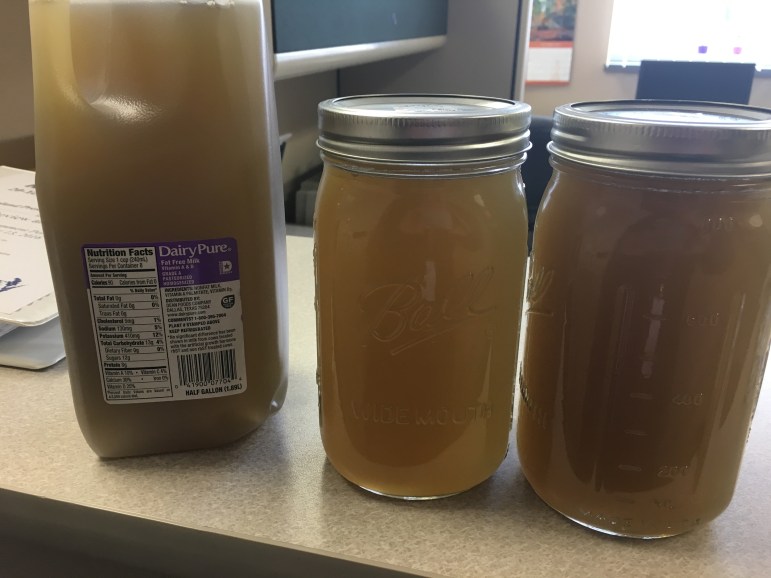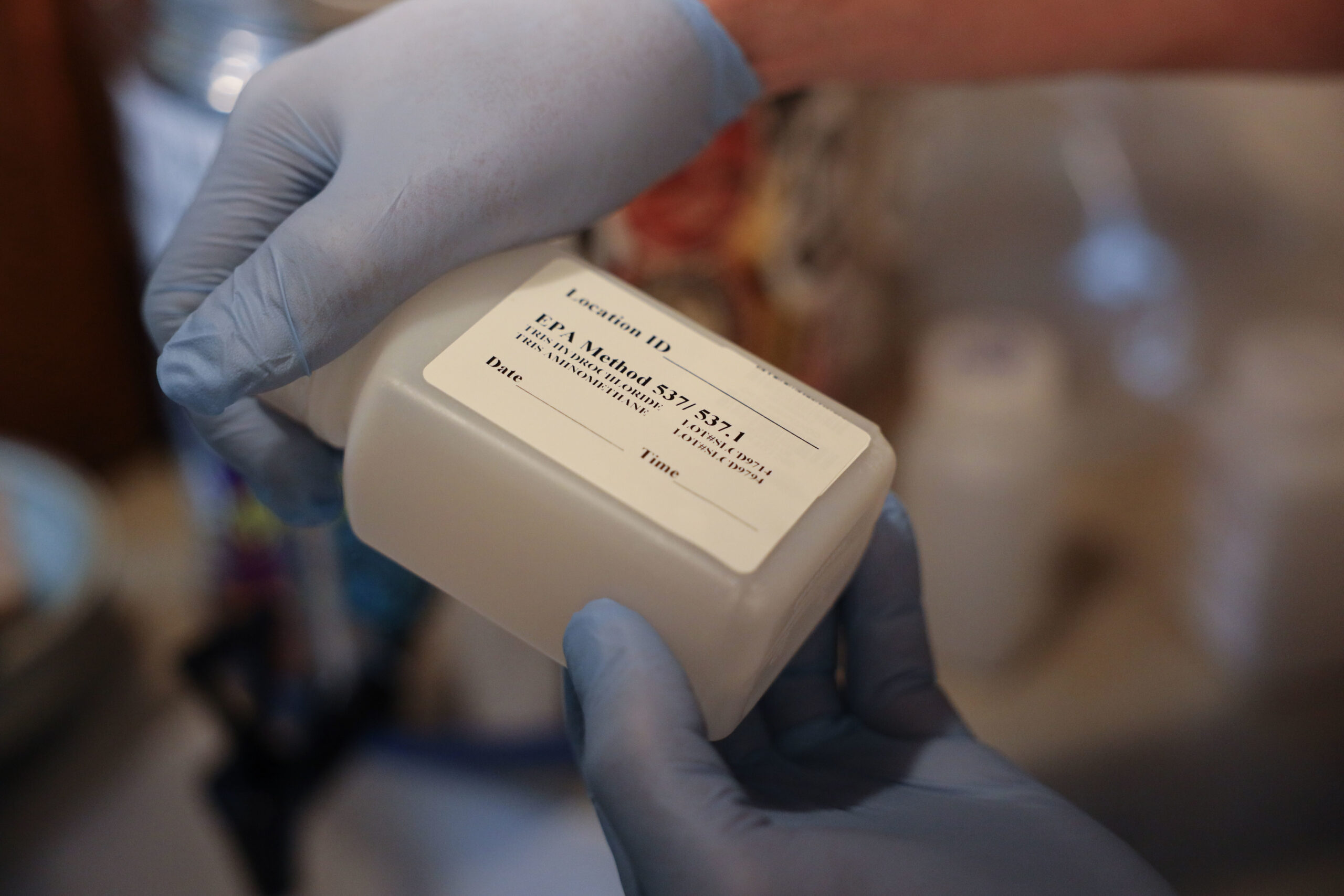Wisconsin environmental regulators and advocates say the state is facing a large backlog in setting groundwater standards due to a 2017 law aimed at preventing costly regulations without legislative approval.
The latest report from the state’s Groundwater Coordinating Council highlighted that 46 groundwater standards brought forward in the last five years remain unaddressed. The group of state agencies recommends the Legislature allow the state Department of Natural Resources and Department Health Services to finish crafting regulations to protect groundwater, which is a source of drinking water for two-thirds of state residents.
The standards would set new limits for 18 PFAS, 18 pesticides and revise standards for 10 metals and other volatile organic compounds.
Steve Elmore, the DNR’s drinking water and groundwater program director, said the agency has faced delays and complications with setting groundwater standards due to the REINS Act. The 2017 law prevents agencies from working on regulations without legislative approval if compliance costs go beyond $10 million in any two-year period.
“That’s been something that has limited our ability to set new groundwater standards, and so then the recommendations just keep piling up,” Elmore said.
Former Republican Gov. Scott Walker signed the 2017 law authored by now-Senate Majority Leader Devin LeMahieu. At the time, LeMahieu said it allowed more scrutiny of agency rules that could cost businesses and taxpayers tens of millions of dollars to comply. LeMahieu’s office didn’t respond to requests for comment Tuesday.
Tony Wilkin Gibart, executive director for Midwest Environmental Advocates, said the state hasn’t made significant updates to groundwater standards in more than a decade.
“Over the last 15 years, we’ve seen the Walker Natural Resources Board and the Legislature obstruct the setting of science-based groundwater standards,” Wilkin Gibart said.
In 2022, a conservative majority of the Natural Resources Board failed to pass groundwater standards for PFAS. Later that year, the board allowed the agency to restart crafting regulations for four PFAS substances.
However, the DNR was forced to abandon groundwater limits for the chemicals in December after an economic analysis found it would cost more than triple the law’s threshold. The agency said benefits of the regulation would likely outweigh compliance costs, projecting standards would avoid nearly $100 million in health care costs each year.
The lack of standards is most critical for around one third of residents who rely on private wells that draw directly from groundwater.

Efforts to address PFAS in groundwater remain at a standstill
Stay informed on the latest news
Sign up for WPR’s email newsletter.
PFAS, short for per- and polyfluoroalkyl substances, are a class of thousands of synthetic chemicals used in cookware, food wrappers and firefighting foam. They don’t break down easily in the environment. High exposure to the chemicals has been linked to kidney and testicular cancers, fertility issues and other serious health problems.
Republicans control the state Legislature and they’ve been at odds with Gov. Tony Evers over how to address PFAS.
Evers asked Republican state Sens. Rob Cowles and Eric Wimberger to advance legislation that would allow the DNR to continue crafting groundwater standards. The two lawmakers introduced a bill, but it came just days before the Assembly adjourned for the 2023-24 legislative session.
While PFAS has been a contentious issue, Wilkin Gibart said the agency could do more to move rulemaking forward and set standards for less controversial contaminants. Elmore said the agency has limited capacity to handle crafting multiple regulations at once.
Even so, he noted the agency plans to move forward with crafting groundwater standards for six PFAS chemicals once they receive updated recommendations from state health officials. The agency requested revised recommendations after the Environmental Protection Agency unveiled new drinking water standards for those chemicals. The DNR also plans to ask for updated recommendations on pesticides.
A spokesperson for the Department of Health Services said the agency continues to support DNR’s efforts to adopt its recommendations.
“These DHS recommendations constitute our best health advice at the time they were issued, and we believe they provide a sound basis for DNR’s rulemaking process,” the agency said in an email.

Nitrate standards also affected by 2017 law
PFAS aren’t the only contaminants that have been affected by the 2017 law. In 2021, the REINS Act forced the agency to abandon its work on crafting nitrate standards in areas vulnerable to groundwater contamination.
Nitrate is the state’s most widespread contaminant in groundwater. Research has shown around 10 percent of private well samples in Wisconsin exceed the federal health standard for nitrates of 10 parts per million. Around 90 percent of nitrate in groundwater can be traced back to agriculture. The latest report states nitrate contamination is increasing in its extent and severity in Wisconsin.
The state is estimated to have more than 42,000 wells with nitrate levels beyond the federal health standard, which is expected to cost more than $440 million to replace. The latest report recommends implementing agricultural practices to protect groundwater from nitrates, pesticides and other contaminants.
Sara Walling, water and agriculture program director for Clean Wisconsin, said efforts to incentivize farmers to adopt conservation practices that benefit water quality or develop nutrient management plans have leveled off.
“If we don’t have, as a state, a much more concerted effort to strategize and prioritize our work to eliminate or at least reduce, if not eliminate, the nitrate concerns, this kind of trend is only going to continue,” Walling said.
Elmore noted the EPA is conducting an assessment of nitrate in drinking water, and the findings could trigger recommendations for revised groundwater standards. Research indicates there’s an increased risk of serious health problems like colorectal cancer and thyroid disease at nitrate levels lower than the federal standard.
In addition to setting health-based standards, the report also suggests finding solutions for water-stressed areas of the state that have limited groundwater resources.
Wisconsin Public Radio, © Copyright 2025, Board of Regents of the University of Wisconsin System and Wisconsin Educational Communications Board.




